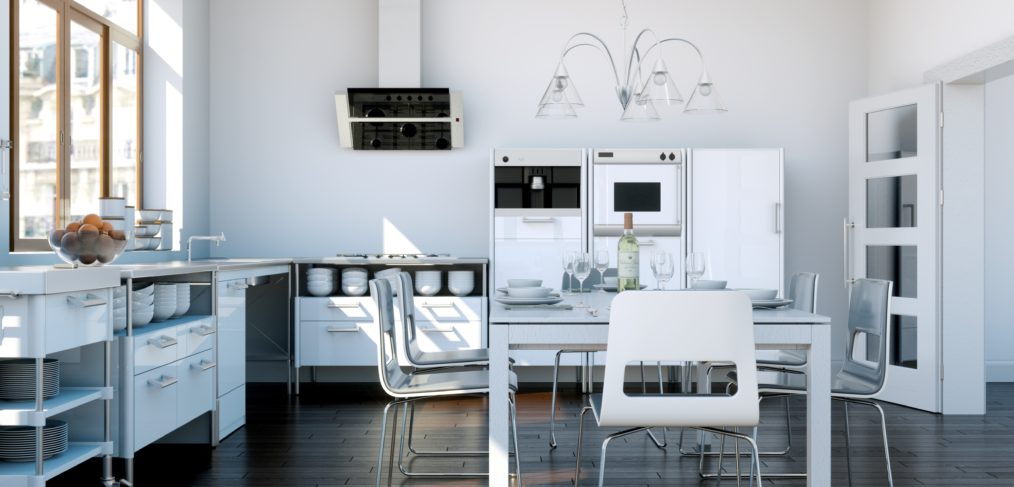
Improving internal comfort – pick the perfect plaster
Joris Smet, Director, Smet Building Products Ltd, shows how choosing the right internal plaster can help improve indoor comfort in passive and new buildings…
Europeans spend at least 90% of their time indoors, and it’s well-known that indoor air quality has a major influence on the health, comfort and well-being of building occupants. Much has been written about how poor indoor air quality can be linked to Sick Building Syndrome, reduced productivity in offices and impaired learning in schools. We construct buildings primarily as shelter from the weather, providing us with security, living space, privacy, and storage, and to live and work in comfort.
It’s this internal comfort we wish to focus on and improve with better building choices.
Now, more than ever, we know building components have a vital role to play in enabling healthy buildings – particularly when it comes to indoor air quality. The building fabric contributes to creating a healthy internal environment as part of an effective ventilation strategy.
IMPROVING COMFORT INTERNALLY
As a result of the regulations for improved energy efficiency in new buildings, the growth in passive buildings and increased interest in healthier, more comfortable and ‘greener’ living environments, the variety of ‘breathable’ internal building components such as insulation, render, plaster and paint has grown. The rise and popularity of these type of products help ensure that the critical airtightness (highly desired in the new building) is not hampered by poor water vapour permeability, leading to an unhealthy, or uncomfortable internal environment.
We need more effective solutions in building materials which can help maximise the internal comfort of our new buildings while promoting ultimate energy efficiency and simultaneously trying to encourage the exchange of outside and inside air. And all this has to be done in a sustainable way!
COMPLEMENTING PASSIVE HOUSE AND NEW BUILD
It’s widely known that internal wet wall plasters contribute to achieving airtightness. What is less well known is that choosing the right plaster can not only provide airtightness but can also play a major role in improving internal environmental comfort by ensuring constant hygrometric exchange between the substrate and the environment.
SMET (the agent for leading German manufacturer, CASEA), has introduced the latest in internal moisture regulating plaster systems – CASEA Casucalc Klima, an internal base coat plaster, combined with CASEA Klimafeinputz KFP, a breathable fine finishing plaster.
The Klimafeinputz KFP breathable fine finishing plaster is unique in that, rather than being a pure cement or pure gypsum-based plaster, it combines the properties of gypsum, lime and clay. The product’s special composition consisting of clay, fine white lime, fractional sands, marble powder and CASUL white pigment, allows the product to breathe – and also provides a high level of protection against micro-organisms/mould growth, without using chemical additives.
Sourced naturally and ecologically, the components of lime and clay combine for excellent technical properties, offering moisture absorption, moisture regulation, strength and protection against micro-organism growth.
Klimafeinputz KFP permits constant hygrometric exchange between the substrate and the environment. It regulates the moisture in the air and it’s highly breathable, therefore, contributing to humidity regulation – it works by absorbing moisture quickly and also by releasing it quickly.
NATURAL ANTI-MOULD PROPERTIES
Similarly, due to its natural chemical composition, it’s particularly alkaline, naturally preventing mould growth. As we mentioned earlier – this is a property particularly important in the airtight envelopes of the newly built passive homes.
With these advantages, Klimafeinputz KFP breathable fine finishing plaster really is the architect’s choice in the design of a healthy indoor climate, and it’s naturally sustainable, containing no harmful ingredients.
The plaster is extremely versatile and can be applied onto all common base coats such as lime-cement, cement, gypsum, gypsum-lime, gypsum lime-clay and clay plastering renders, as well as onto plaster boards.
The addition of CASUL white pigment means that the dried finished plaster has a very bright, white colour, which is excellent news as painting is not mandatory. However, if a colour finish is required, and in order to facilitate maximum breathability when painting, we recommend you use compatible silicate, lime or clay-based paints.
CASEA Klimafeinputz KFP is a factory-produced special white, mineral fine plaster CS I – according to EN 998-1 suitable for indoor use. It’s pre-mixed and supplied in ready-to-use 25kg buckets with a smooth finish. The addition of the natural binders allows a long open time, ensuring the perfect finish is achieved.
Technically, it has an excellent bond to virtually any mineral substrate, therefore proving particularly suitable for new builds. It’s very versatile for walls constructed out of low, medium and high-density blockwork and any other masonry substrate. As a finish skim coat, it’s ideal for final finishing of CASEA Casucalc Klima basecoat and CASEA Bauprotec renders and plasters where a smooth finish is required. Being a strong plaster, it can be used in kitchens and bathrooms where tiling is required.
The special features dramatically improve the indoor living environment and are active throughout the lifetime of the plaster surface, making it ideal for use in kitchens, living rooms, student accommodation, hotels, conference facilities, sports facilities – or anywhere where a comfortable indoor ambience is required.
Benefits of CASEA Casucalc Klima and Klimafeinputz KFP:
• High water vapour permeability (breathability)
• Hand or machine application
• High hygrometric exchange
• High protection against micro-organism growth
• Sustainable
• Smooth finish
• Ready to use
• CE EN 998-1:2010
• Come in 30kg bags and recyclable 25kg buckets
• Painting not mandatory (bright white finish)
To discuss the plaster finish on your plastering project, contact SMET on:
Read more like this: https://www.smetbuildingproducts.com/news/
